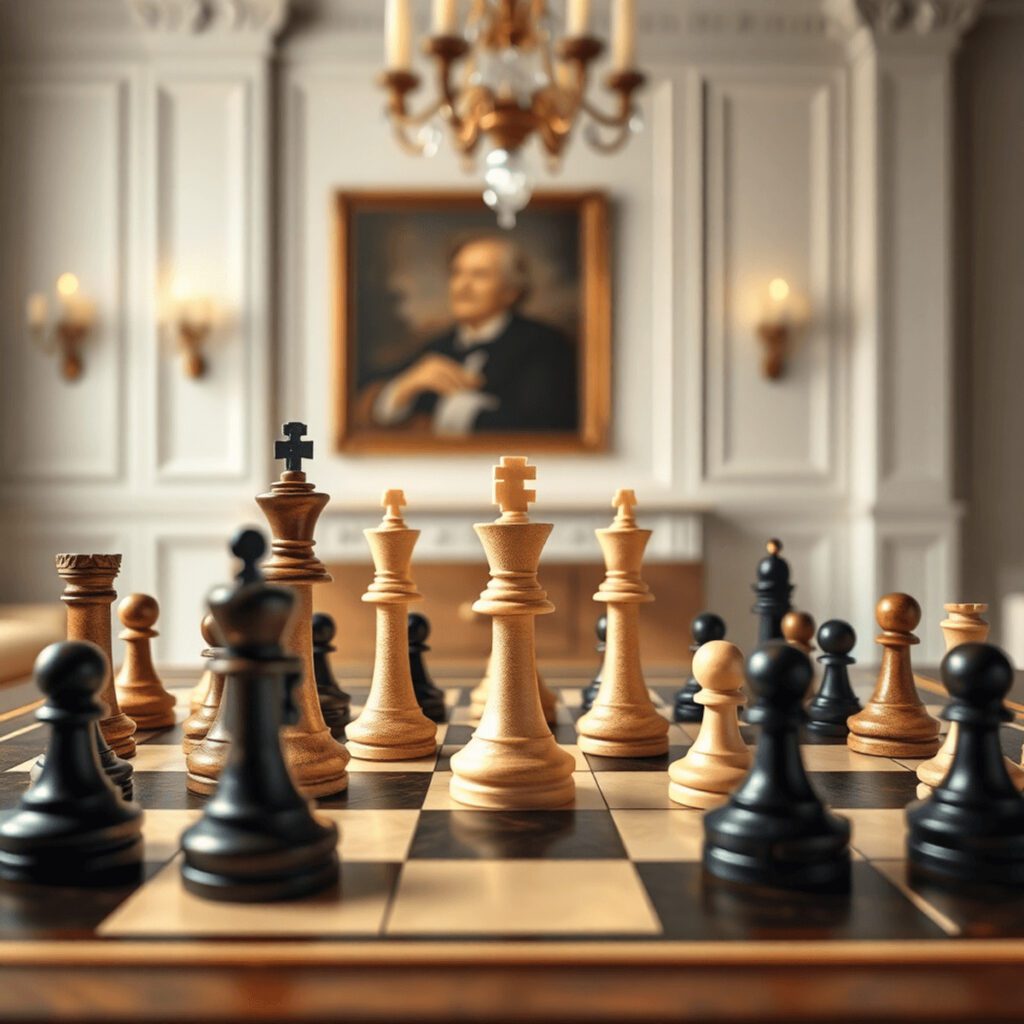
Chess is more than just a board game; it’s a battle of minds, a test of strategy, and an intellectual pursuit enjoyed by millions of people worldwide. From its ancient roots to its modern-day competitive tournaments, chess has transcended generations and continues to grow in popularity. This comprehensive blog will dive deep into the history of chess, explore its intricacies, and provide actionable tips on how to improve your game.
The Origins of Chess
The history of chess dates back over 1,500 years. Originating in India as Chaturanga around the 6th century, the game evolved as it spread to Persia, the Islamic world, and eventually Europe. The modern rules of chess were solidified during the 15th century in Spain and Italy. Chess has since become a global phenomenon, recognized for its ability to foster cognitive skills like critical thinking and problem-solving.
Why Chess Is Timeless
- Strategic Depth: Chess offers endless possibilities with over 10^120 potential moves (Shannon number), making it a complex and mentally stimulating activity.
- Global Accessibility: Chess transcends language and culture, uniting players from different backgrounds.
- Educational Value: It enhances logical thinking, planning, and patience.
- Online Resurgence: Platforms like Chess.com and Lichess have brought a modern twist to the game, making it accessible to anyone with an internet connection.
Understanding the Basics of Chess
- The Chessboard:
- Consists of 64 squares in an 8×8 grid, alternating between light and dark colors.
- Each player begins with 16 pieces: one king, one queen, two rooks, two knights, two bishops, and eight pawns.
- The Objective:
- The ultimate goal is to checkmate your opponent’s king. Checkmate occurs when the king is under attack and cannot escape capture.
- Piece Movement:
- Pawn: Moves forward but captures diagonally. Can be promoted upon reaching the eighth rank.
- Knight: Moves in an L-shape.
- Bishop: Moves diagonally any number of squares.
- Rook: Moves horizontally or vertically any number of squares.
- Queen: The most powerful piece; combines the movements of a rook and bishop.
- King: Moves one square in any direction but must avoid check.
Strategies to Master Chess
- Control the Center:
- Dominating the central squares (e4, e5, d4, d5) allows your pieces to have maximum mobility.
- Develop Your Pieces:
- Avoid moving the same piece multiple times in the opening.
- Get your knights and bishops out early to control the board.
- Protect Your King:
- Castling early is an effective way to safeguard your king and connect your rooks.
- Think Ahead:
- Analyze your opponent’s moves and plan your strategy multiple steps in advance.
- Avoid Common Pitfalls:
- Don’t bring your queen out too early.
- Be cautious of traps and sacrifices that may lead to losing valuable pieces.
How to Improve Your Chess Skills
- Learn from Masters:
- Study games played by grandmasters like Magnus Carlsen, Garry Kasparov, and Anatoly Karpov.
- Practice Online:
- Platforms like Chess.com and Lichess offer puzzles, lessons, and real-time matches.
- Analyze Your Games:
- Reviewing past games helps identify mistakes and improve future performance.
- Read Chess Books:
- Classics like My System by Aron Nimzowitsch or Bobby Fischer Teaches Chess are invaluable resources.
- Participate in Tournaments:
- Competing in local or online tournaments sharpens your skills and exposes you to diverse playing styles.
Chess Variants You Should Know
- Blitz Chess:
- A fast-paced version with time controls of 5 minutes or less per player.
- Bullet Chess:
- Ultra-fast chess, often with 1-minute time controls.
- Chess960:
- Introduced by Bobby Fischer, this variant randomizes the starting position of pieces to emphasize creativity over memorization.
- Bughouse Chess:
- A team-based variant where captured pieces can be placed on your teammate’s board.
The Role of Chess in Modern Culture
- Chess in Education:
- Schools are incorporating chess into curriculums to improve students’ analytical and cognitive abilities.
- Chess in Media:
- Popular shows like The Queen’s Gambit have reignited global interest in chess.
Monetizing Your Chess Skills
If you’re passionate about chess, you can turn it into a source of income:
- Content Creation: Start a YouTube channel or blog about chess strategies.
- Coaching: Offer lessons to beginners and intermediate players.
- Streaming: Stream live games on platforms like Twitch.
- Writing: Publish books or eBooks on chess strategies.
Chess and Technology: The Digital Revolution
- Online Learning:
- Platforms like Chess.com Academy and GothamChess provide lessons for all skill levels.
- Chess Engines:
- Tools like Stockfish and Komodo offer in-depth analysis of games.
- Mobile Apps:
- Apps like Play Magnus and ChessKid make learning chess fun and interactive for all ages.
Fun Facts About Chess
- The longest recorded chess game lasted over 20 hours and consisted of 269 moves.
- The word “checkmate” comes from the Persian phrase Shah Mat.
- Chess is recognized as a sport by the International Olympic Committee.
Conclusion: Why Chess Is the Game for Everyone
Chess is more than just a game; it’s a lifelong journey of learning and growth. Whether you’re a beginner or an aspiring grandmaster, chess offers endless opportunities to challenge your mind and connect with others. By understanding its rules, practicing consistently, and embracing its strategic depth, you can unlock a world of intellectual fulfillment.
